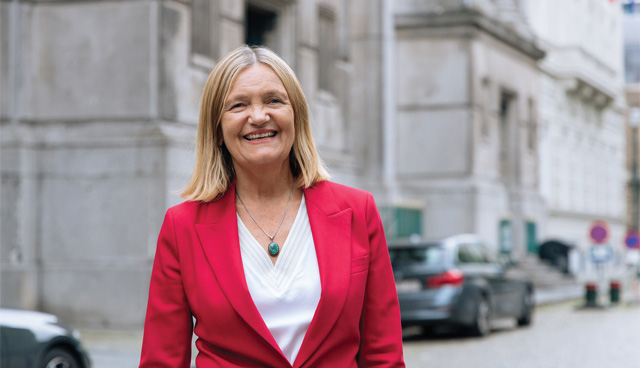Domestic priorities and EU policy

Post-Brexit, geopolitical gravity will cause Ireland to coalesce more firmly with the EU than ever before. Now is the time to explore how the State’s domestic priorities intersect with the Europe’s direction of travel over the next decade, Brigid Laffan writes.
Ireland faces many policy challenges including housing, health, transport and the balance between urban and rural development over the next 10 years. Being a member state of the EU does not absolve the Irish Government from addressing all of those policy challenges within its control.
Most of what touches our daily lives remains national and local. How much to tax and spend, and how to distribute public monies across different sectors is a matter for national governments and parliaments. However, domestic priorities must be seen in the context of wider EU priorities. Is there a good fit between national and EU priorities?
Membership of the EU remains central to Ireland’s place in the world and its future prosperity and wellbeing. The future EU-UK relationship matters more to Ireland than any other member state because of geography. But the EU agenda is far more than Brexit. In fact the von der Leyen Commission has a bold and ambitious agenda for the next five years and beyond with three big priorities:
- a new green deal with the aim to make Europe carbon neutral by 2050;
- making Europe fit for the digital age; and
- Europe’s place in the world.
It is vital that the Irish system of public policy making scans this agenda and positions Irish preferences and interests in relation to the different policy streams that are coming.
The first priority, a new green deal for Europe, is truly transformational. Everything about how we live today will be affected by the drive for carbon neutrality and no cohort of society will escape the need for change. Most of us understand that there will have to be change but not many of us, including me, have truly accepted what this means in terms of how we live, consume, move and work.
Carbon reduction will require new modes of sustainable transport and a vast improvement in the public transport system particularly in the cities. It will impact the built environment and the sustainability of the existing housing stock and new builds. It will affect the provision of energy and the related infrastructure and it will affect agriculture.
The relationship between public services and place must develop within a ‘sustainable’ macro framework. All of this requires a strengthening of the foresight and planning capacity of the Irish public system. Ireland needs to begin from the existing knowledge base and evidence produced by Irish public bodies and work from there.
The greening of the EU including Ireland will place considerable demands on the Irish public system and requires a cross-sectoral, whole of government, macro framework with clear targets, actions plans and review. Setting targets is the easy part of the process, delivering is much more demanding.
It is one thing to prepare the policy-making system for sustainability, and another to manage the politics. Greening will cost in terms of investment, will cost individuals and communities and will bring uncomfortable choices and trade-offs. Engaging with the public on the green dossier is essential as it is relatively easy to agree to the goal but not to accept the costs and there is no cost free way to achieve these ambitious targets.
Well handled, the greening agenda can act as a mobilising and catalysing dynamic for Irish society and would certainly animate the young. Badly handled, it will be a constant source of friction and political struggle. Given what is at stake for the planet, Ireland should mobilise all of its public, community and individual effort to build a sustainable economy and society.





